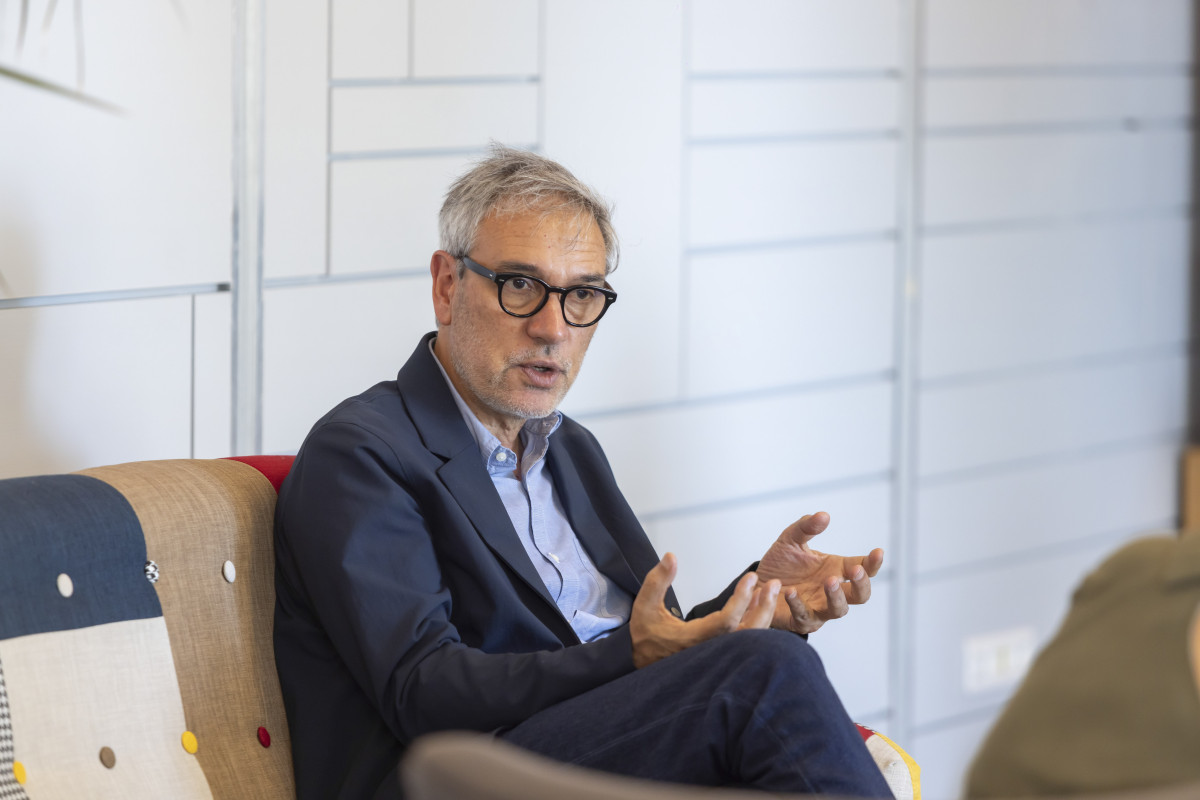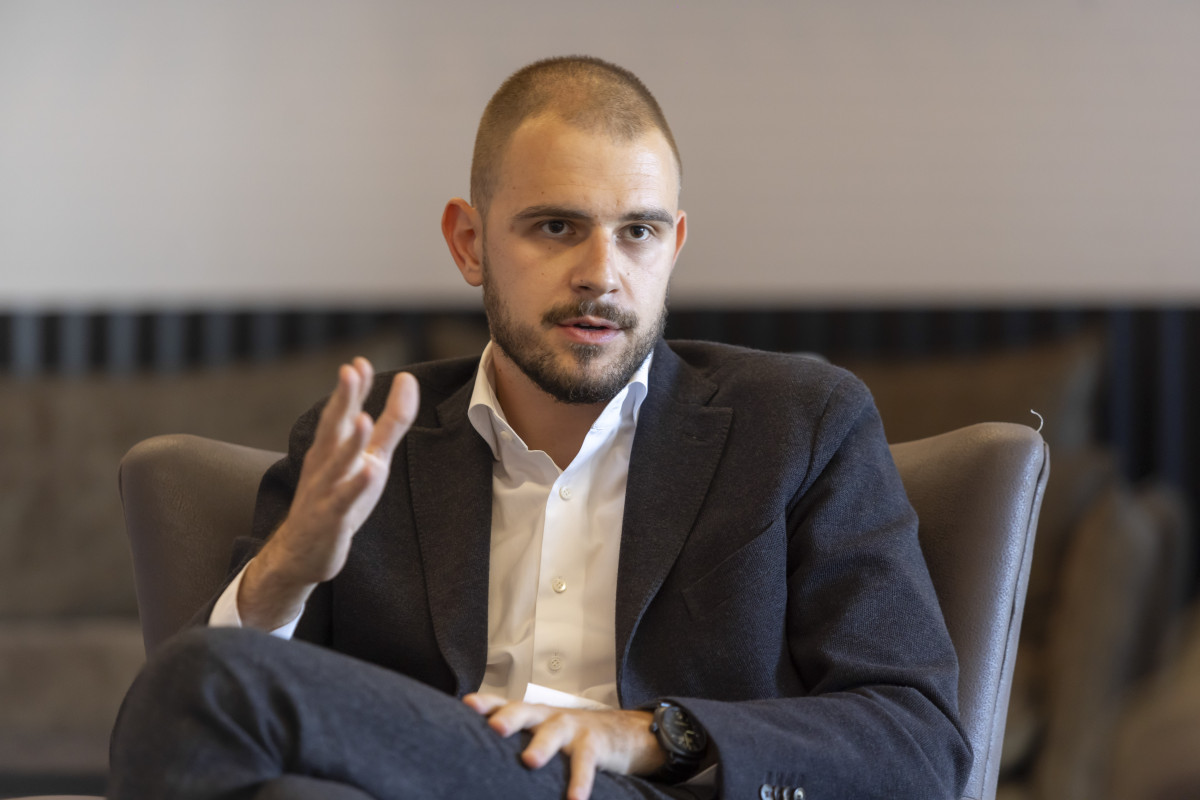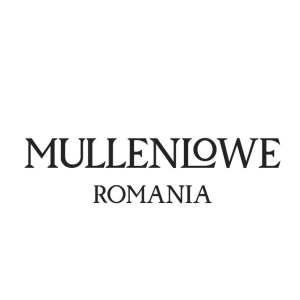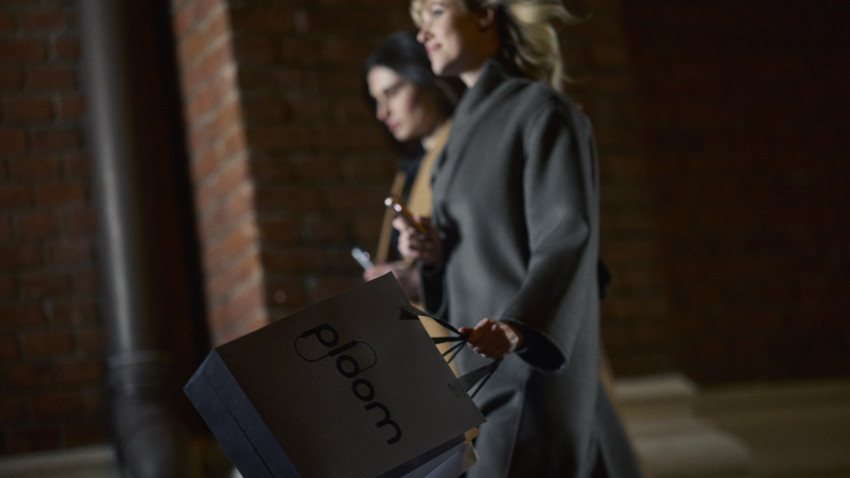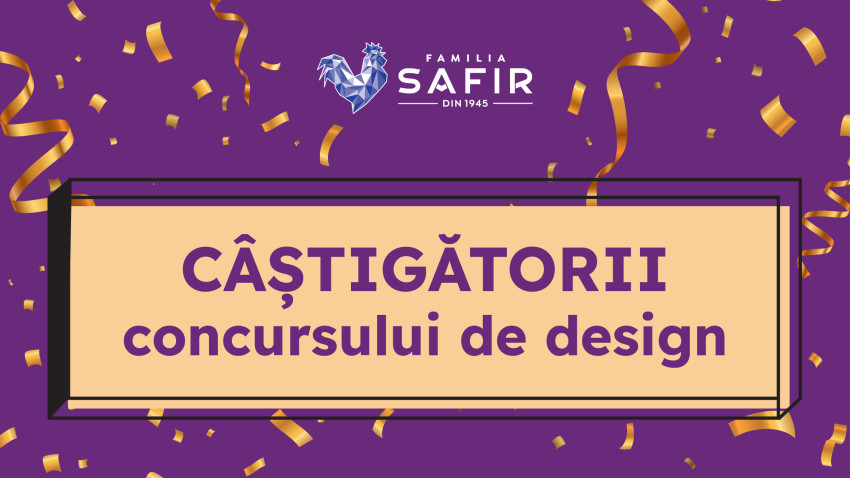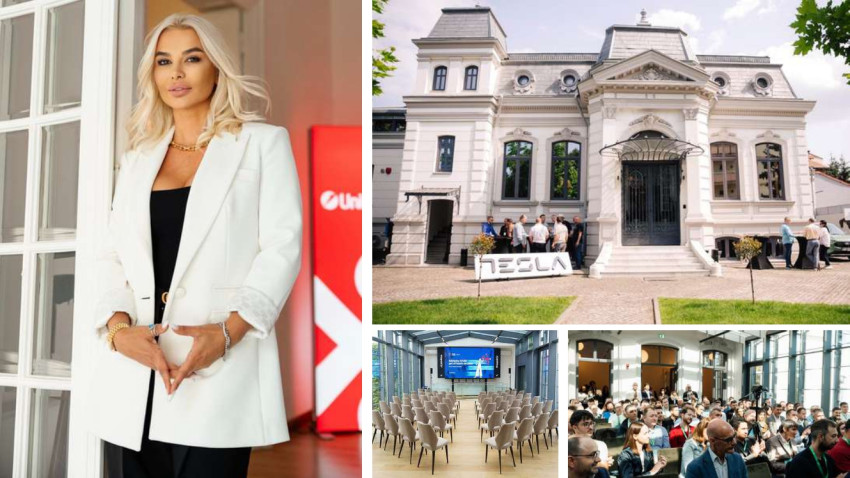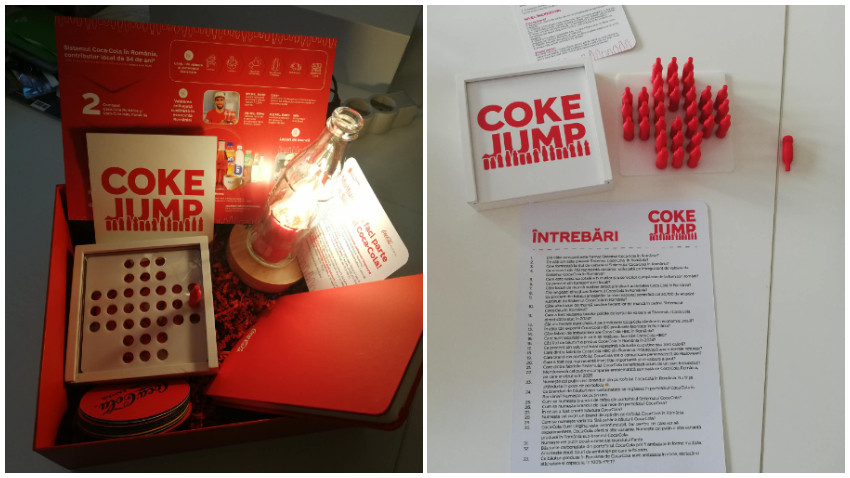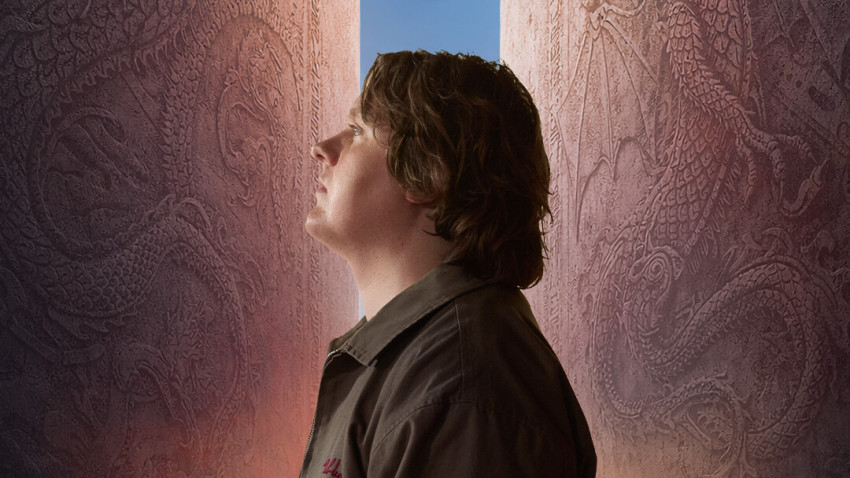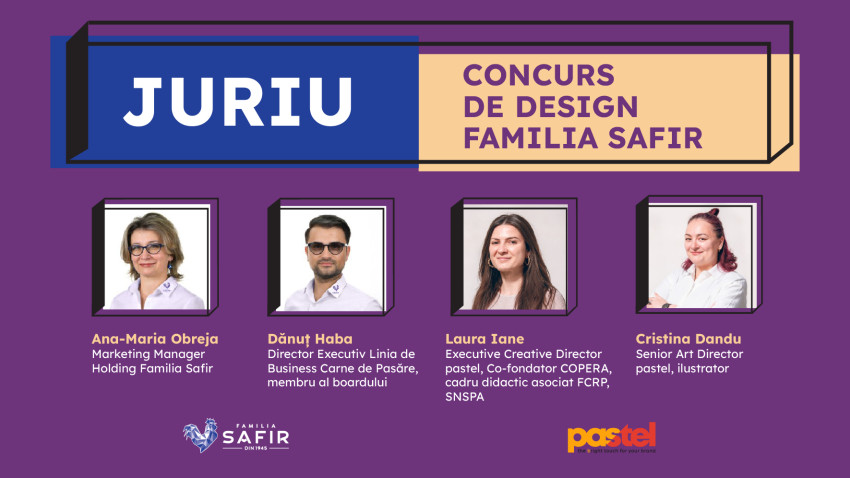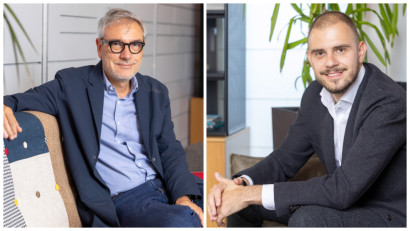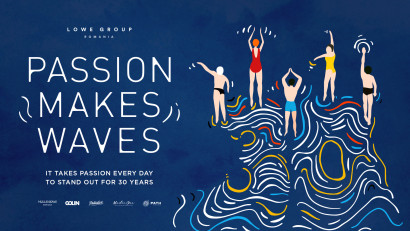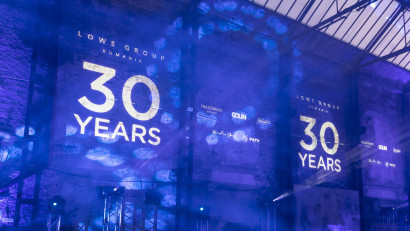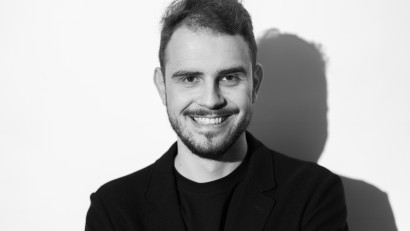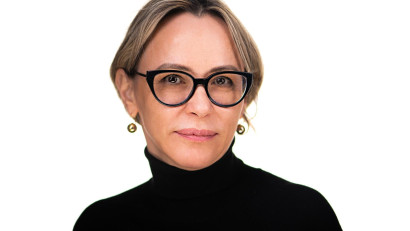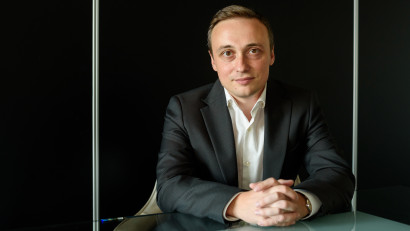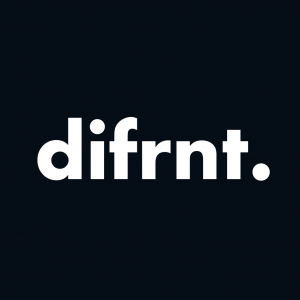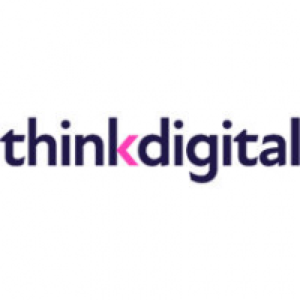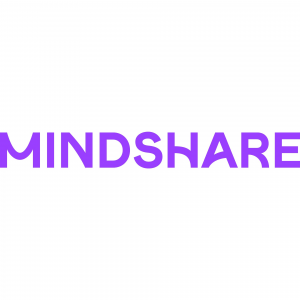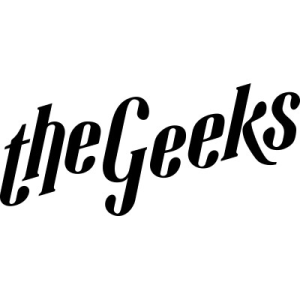Despite the dramatic changes happening all around us, from AI to the job market, from social unrest to technological revolutions, there is one constant in communication that doesn't change its purpose: The power of creativity to solve problems. This is the role of communication professionals, believes Jose Miguel Sokoloff, Global President MullenLowe Creative Council. Originally from Colombia, one of the most awarded creatives in the world, Miguel made an impressive contribution through its projects, carried out for 10 years, in the demobilization of the FARC Guerrillas in the Colombian jungle and helped end decades of violent conflict.
”I lived and worked in a world where my job was to make you comfortable with the choices that you make exclusively in a commercial level. But as time has gone by, the realm of advertising had expanded and now we work to bring change to society and to make people be better citizens, to be more gentle, to give more, to change things”, says Miguel.
Miguel Sokoloff recently came to Bucharest to celebrate 30 years of Lowe Group in Romania. In a discussion with Jose Miguel Sokoloff and Sever Savanciuc, CEO of Lowe Group, we talked about the role of advertising in 2023, technological and social challenges, about AI, new generations of consumers and ideas that generate real impact and change.
The definition of creativity in 2023
Miguel: I think the most simple definition of creativity is the ability to solve old problem in a new and better way. That's what it is. Somebody needed to hold water and somebody thought at a round thing and it was creative.
Creativity is solving a problem in a better way. It never stops. You can always improve. What has changed is that creativity was incremental to make things better gradually. It was an evolutionary process. And now, because of the speed and the amount of computing and the amount the information that we manage it has gone from being evolutionary to being revolutionary. So creativity today is disruptive. We are in an era of disruption.
We are still solving problems in a better way but somehow we moved from gentle evolutionary creativity to disruptive creativity.
Everybody is a problem solver. We are all creative, we are all very creative, but we solve different problems at different times. Most of our creativity goes unnoticed. I think everybody is creative. Is just that we don't realize that we are creatives sometimes.
How has your perspective changed
Miguel: I think my responsibility has not changed that much. Our job as advertising creatives is providing people with more and more informed choices. At the end of the day that's what we are doing. True, we are not going to say bad things about ourselves, but at least we should (and I believe we are) saying the truth about what we are doing.
And how does that manifest itself in the scariest way? If I walk into a supermarket here and there will be many brands that I have no idea about, because I don't know their history, I don't know anything, that stresses me out. If I had lived in this country for a long time, I would probably know all these brands, they would be familiar, and I would make my choices without the fear of making a mistake. That is what my role is. Make sure that you feel comfortable with the choices that you make.
Now, that has, over the years, evolved. Because it used to be that I lived and worked in a world where my job was to make you comfortable with the choices that you make exclusively in a commercial level. But as time has gone by, the realm of advertising had expanded and now we work to bring change to society and to make people be better citizens, to be more gentle, to give more, to change things. But those are choices that people are making and we have to be sure that they feel comfortable making them.
The work for Colombian Ministry of Defense
Miguel: There were two types of fear that I want to talk about. There were some tangible fears and there were some metaphorical fears. First, is it dangerous? We clearly take the side against the guerrillas. And the metaphorical ones: what if everything we do is pointless?
We addressed the real fears, the tangible fears. We had a meeting and somebody said: I worry that this is going to expose us. We may be in danger. And my response was: it's much more dangerous if we don't do it. Because we have the tools and the opportunity to affect the outcome of this war. To end it. Letting it continue is probably a lot more dangerous than not doing anything about it.
The metaphorical fear was that we were going to do something that was difficult. We were going to talk to people that are militants, that are convinced about their choices. We want to change their minds. Is that even doable? And the answer was: it is doable, but it is not immediate. It will take time. And we will not accept this challenge if we don't have the assurance from the client, from the Government, that we will at least have five years. Because this is a slow process. Without that agreement I think we would've failed.
We had the fortune of working on the same brief for the same cause for a period of ten years. So, over ten years the results were impressive.
How do you stop violence with creativity
Miguel: I wish I knew. Because if I knew, I would've done it. The first step is you have to learn about the conflict. You have to understand that there are always two points of view. And you have to understand both points of view very, very clearly.
The second step is: once you understand what your opponent thinks and why they think that, and why they go to war and why they hate you, the second thing you have to do is not judge. And not say there is good and bad. Because there isn't. No conflict is good or bad. Only history decide who was good and who was bad. So, you cannot judge. You have to offer an alternative. You have to offer a credible alternative. It is not up to us, in communication, to offer the alternative. It is up to the client. I would dedicate my time to think of different alternatives. Sell that alternative and then advertise that alternative.
But without an alternative is just rain on wet soil.
I think we have to dedicate all the brains that are out there to find alternatives to solve it, not to say: Stop, Stop, Stop! It's not gonna stop just because of that. Find alternatives where people feel that they are being heard, that they're gonna be part of the solution, and not just part of the problem.
The responsibility of advertising
Miguel: We have the power to communicate. And to change minds. But the person who makes this furniture has the power to buy sustainable materials or not. These are choices that i can't affect. But my responsibility is to my beliefs. What if my beliefs are not the same as yours? Am I not being true to my responsibility? That is a conversation that i believe we should have. Because advertising is supposed to have a responsibility but according to what you believe.
Here is a discussion that I had with my children. They said: "Dad, your generation really fucked up the world!". They said: "You gave us plastic!". Yes, but we gave you plastic not just to pollute the world. We gave you plastic because that was a good solution. My generation created plastic because it was easy to carry. It offered so many solutions. We didn't create it to fuck up the world. We created to solve a lot of problems. You are going to grow up and you are going to have some solutions that you think are the best solutions possible. And probably your children are going to say you completely fucked up the world.
The rise of AI
Miguel: I think artificial intelligence is amazing. AI is seen with such fear not because of AI itself but because of Science Fiction. Because we have written the story of Terminator, because machines will take over the world, because Arthur C. Clarke. We have created this whole image that only humanity is good. I would argue that humanity is much more evil that AI. AI is a tool. Yes, Artificial Intelligence is always learning, but it has limits. AI can create software, can look at software, can learn, but I don't think it can change its purpose.
Here is the controversial part. The only thing that scares the shit out of me is when religion gets in. As soon as religion gets involved it will start to act irrational. If you believe certain things then you are good. If it starts judging and it stops being rational, it will be very dangerous.
Sever: As we have seen with bitcoin and cryptocurrency, people fundamentally don't want decentralization, they don't want raw technology. What we will probably see with artificial intelligence is that even though its capabilities are rather boundless, humans will put it into the boxes that make sense for humans. Humans want the safety. The technology that will integrate artificial intelligence into the solution will become dominant.
The changes will be striking and revolutionary, but they will be contained, in terms of risks and fears people have.
The new generation of consumers
Miguel: Every generation want to be different from the previous generation. And every generation brings their own values into the equation. Brands and advertising have to adapt to those values.
I am a little skeptical. There is a famous cartoon, where a kid says to another: "You better change the world before it changes you".
I think fundamentally we all start being revolutionary. There is a good saying in English: "If you're not a socialist when you are young, you don't have a heart. And if you are not a conservative when you are old, it means you don't have a brain".
We all go through that change. We are activists at first, whoaaaa, we are gonna make a better world, etc. etc. Then, we have kids and we have to feed them and send them to school. When you have something to lose, you want to protect it.
My generation and the generation before me... we were the hippies! I mean, if there is something revolutionary - look at us! Now we are going in cruise ships with tons of people nearly dead as well and dancing to music of the 80's under a disco ball, spending money and living off our pensions. We were the hippies and we were gonna change the world. We grew old, like everybody else. And I think that's gonna happen with all of us.
The factors influencing the advertising market in Romania
Sever: I'll put it into three main buckets. One is macro-economic. Austerity measures and shifting security landscape that we are seeing. Each play with the consumer levels of confidence and brands levels confidence to invest in communication, but also in product.
What we are seeing are brands focusing more and more in the las year and probably in the coming year in more functional, price focused communication. Less focused in investing in future strategies and products of the future from a communication perspective. We are adapting to that by giving them strategies that stay truthful to their brand.
Societal changes. The industry here is struggling to a long-term brain drain. Because of people leaving the country, reorientating towards other industries. It is, I think, a global situation: the sparkle that advertising maybe lost at one point in time. What we focus on is really identifying people that share our values and our drive for progress.
What we are saying is that what we are doing here is incredibly relevant. The people who believe that still in the industry and who put that into their work. If we want to generate impact, we want to be working with clients that have the courage to generate impact. We make these difficult choices sometimes. In order to have people aligned with your values, we need to have clients aligned to our values.
In terms of technology, I think Romania is five years behind the global trends, in terms of split between traditional media and digital media spent. But now the gap is really closing. We are seeing a much more omnichannel approach that we need to take, we are building up a much bigger exposure and an appetite for technology in the media side. But also, the integration of all those competencies across the group.
Modern Lowe doesn't just mean creative professionals, we are bringing the data in there, we are bringing media expertise and PR expertise in order to really make a solid integrated product.
DNA of the company brand
Sever: Passion Makes Waves. It's been a really great concept for us because it brought together all those things we believe in. Lowe Group has always been a people focused company. And so, the DNA is this: a company that puts passion in what it does. We believe in the impact and in the relevance of what we do. And we nurture it with an appetite for investment in technology and in new lines of business, but it all come down to this appetite for impact and the passion to do it.
The shifts that we are talking about, towards an omnichannel approach or digital approach, rebirth of experience in how brands communicate post-covid, the way those competencies are integrating, creative PR and media, these are all things that tell us that we need to invest in new capabilities, organic or non-organic.
Be out there, be open, take risks, because the market is shifting and is still growing quite fast and those risks will be rewarded.
The biggest challenge for brands and agencies
Sever: First, the people. The competition for the greatest minds out there is very strong. And we rely on great minds and we feel that pressure and we work a lot on our employer brand.
The second challenge is just the high-level of the competition in the market and the fragmentation of the market. This has, in time, influenced client behavior and we see pitches with 10 agencies. This situation is driven by the lack of confidence and courage of the professionals in the industry maybe as a whole.
The final challenge is the decolonization of decision-making power from a lot of local brunches of international businesses towards a regional headquarters. This leads to less courageous country managers, less courageous marketing managers. We want to do impactful work, but we need a strong partner to do that.
The industry was more courageous 20 years ago. And this was a global trend. I think the fun in advertising was taking over the more functional needs of brands and the way brand managers think about the brands. What was lost was this ability to take risks that came from a more long term view that was replaced with short term visions and it is always easier to play it safe when you are thinking of short-term results.
A name for this chapter in advertising
Miguel: We are switching chapters from "Purpose is king" to "Remember why you advertise".
Sever: I am not a copywriter, but I would name this chapter of advertising "Let's stand up for ourselves".



